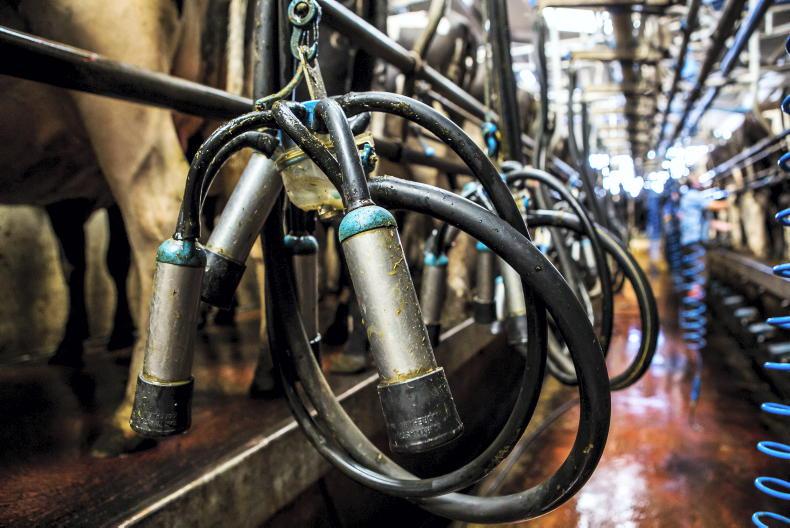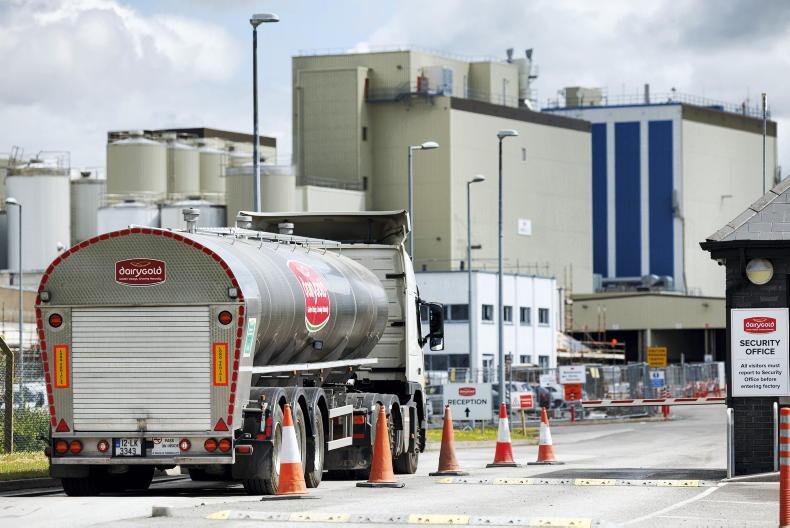Ornua chief executive John Jordan says he hopes the governance changes and board restructure agreed last week will result in greater diversity around the Ornua board table.
Speaking to the Irish Farmers Journal this week, Jordan said he would love to see greater diversity on the Ornua board and believes the new board seats for independent non-executive directors will allow for this.
The current board of Ornua comprises 15 directors – all of whom are men
“I’d love to see more diversity on the Ornua board, starting with gender diversity. It would be fantastic for the organisation, particularly when you think of Ornua as a modern, international business. Whether it’s gender or cultural or cognitive diversity, having some diversity around the board table is hugely important and it allows for better debate,” said Jordan.
The current board of Ornua comprises 15 directors – all of whom are men. However, as part of significant governance changes agreed at a special general meeting (SGM) last week, the current board is set for a major overhaul, with the CEOs of the eight co-ops that sell product to Ornua no longer allowed to sit on its main board.
Instead, these eight co-ops (Glanbia, Dairygold, Carbery, Lakeland, Arrabawn, Aurivo, Tipperary and North Cork) must nominate a non-conflicted director, which is someone who has not served as a senior executive or as a board member of that co-op in the last six months.
Representatives
Alongside these non-conflicted nominees from the eight co-ops, the new board of Ornua will be made up of one representative from each of the three farmer organisations (IFA, ICMSA and ICOS), two executives from Ornua (the CEO and CFO), and three independent non-executive directors. In future, the chair of Ornua will always be appointed from one of these three non-executive directors.
The new board of Ornua will be in place for November, which Jordan said he believes will be a good mix of farmer and business expertise.
Jordan said the changes agreed at last week’s SGM were the fruit of two years of work to try and modernise the governance structures at Ornua.
Jordan commended the outgoing board for taking on the task, which he said was not easy
As the Irish dairy industry has evolved, Ornua has found itself competing against almost all of its co-op shareholders in various markets or categories.
This created a conflict of interest for some board members and new governance structures were needed to address this. Jordan commended the outgoing board for taking on the task, which he said was not easy.
This is particularly true for the CEOs of the eight co-ops as it meant effectively relinquishing their control of Ornua by stepping away from the board.
Jordan said the eight co-ops are currently going through the process of selecting their non-conflicted nominee and that it was up to each co-op to set out the criteria for what sort of skillset their board nominee should have. Ornua will not set out specific criteria in terms of skillset or experience that these nominees must have.
Future relationship
Despite some concerns in the industry that these changes to the Ornua board could weaken the link between the primary processor co-ops and Ornua, Jordan argues the opposite insisting that the changes will allow for greater commercial engagement between Ornua and its member shareholders.
“The board changes make the relationship much stronger. It takes the relationship between Ornua and member shareholders out of the boardroom and takes it back to a supplier-customer style relationship,” said Jordan.
Ultimately, Ornua must perform for its shareholder co-ops in order to ensure it has a supply of product. After all, co-ops are under no obligation or contract to supply dairy products to Ornua.
Dairy product
In 2019, Ornua bought 340,000t of dairy product from Irish co-ops and paid them €1bn in return. Jordan says Ornua was able to pay co-ops an extra €44.5m on top of the base commodity price for their products during the year, which is an added value return of 4.4%.
Ornua has set itself a very ambitious target of hitting €2bn in sales under the Kerrygold brand by 2025, which will be essential to ensuring its member co-ops continue to trade product through it.









SHARING OPTIONS